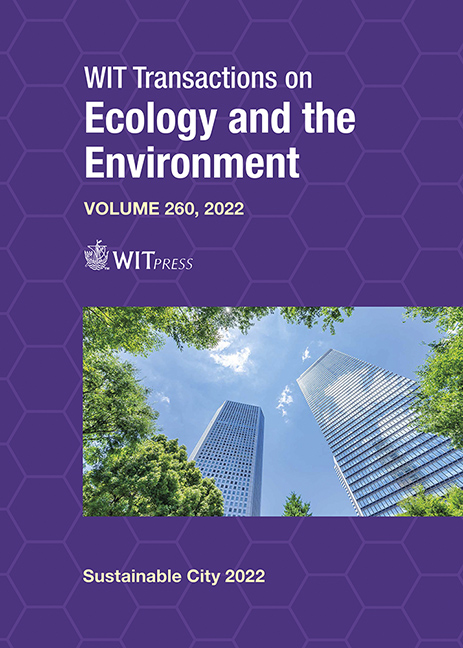BEYOND GROWTH: A STUDY ON THE TRANSFORMATION OF URBAN RENEWAL GOVERNANCE IN THE SOUTHERN PART OF THE OLD CITY OF NANJING, CHINA, BASED ON THE URBAN REGIME THEORY
Price
Free (open access)
Transaction
Volume
260
Pages
15
Page Range
243 - 257
Published
2022
Paper DOI
10.2495/SC220201
Copyright
Author(s)
YU GAO, JINGXIANG ZHANG, HAO CHEN
Abstract
With the transition of China’s urbanization to a medium speed, urban renewal has gradually become a new hot spot in China’s urban movement recently. It brings new motivation to study China’s governance model and urban renewal transformation. The “urban regime” theory has been widely used in studying urban governance because of its solid explanatory function. However, in the past, “growthism” made urban regimes have inevitable convergence, and the research of single time nodes and projects cannot explain the transformation characteristics of the recent urban renewal governance mode in China. Therefore, based on the long-term tracking of the renewal practice in the Southern Part of the Old City of Nanjing (SPOCN), this paper profoundly analyzes the urban renewal governance model of the SPOCN in different periods using the “urban regime” theory and attempts to refine the transformation characteristics of the new urban regime in recent renewal movement. The study found that the practice in SPOCN experienced three different stages of “rapid growth”, “opposition to growth”, and “exceeding growth”, corresponding to the “developmental regime”, “progressive regime”, and “expanded regime”. In the new period of renewal practice in SPOCN, the rise of residents’ consciousness and intellectuals has led to the expansion of social power, the transformation of government power, and the withdrawal of market power, forming an “expanded” governance system for the organic renewal. Also, historical culture and people-oriented values have become the core value orientation that dominates renewal movements, and residents’ proposals have become the dominant factor affecting the renewal paradigm and policy innovation. However, the current “expanded” regime in SPOCN focuses too much on the will and welfare guarantee of disadvantaged groups, which puts forward new practice and research needs for a sustainable financial guarantee and policy innovation system in this regime.
Keywords
urban micro renewal, urban regime theory, urban renewal, governance, transformation, China





